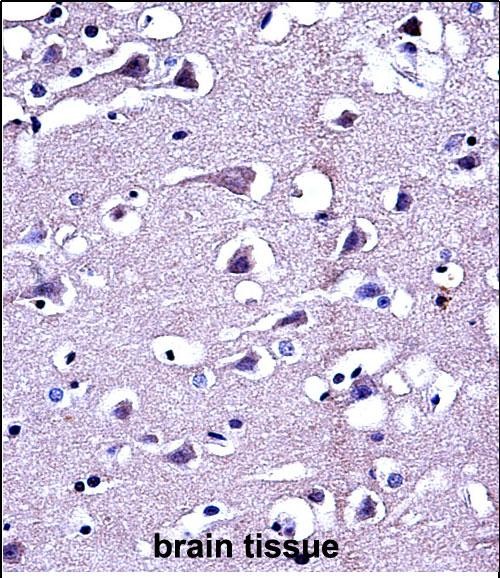

| WB | 1/1000 | Human,Mouse,Rat |
| IF | 咨询技术 | Human,Mouse,Rat |
| IHC | 1/100-1/500 | Human,Mouse,Rat |
| ICC | 技术咨询 | Human,Mouse,Rat |
| FCM | 咨询技术 | Human,Mouse,Rat |
| Elisa | 咨询技术 | Human,Mouse,Rat |
| Aliases | Matrix metalloproteinase-16, MMP-16, 3424-, MMP-X2, Membrane-type matrix metalloproteinase 3, MT-MMP 3, MTMMP3, Membrane-type-3 matrix metalloproteinase, MT3-MMP, MT3MMP, MMP16, MMPX2 |
| Entrez GeneID | 4325 |
| WB Predicted band size | 69.5kDa |
| Host/Isotype | Rabbit IgG |
| Antibody Type | Primary antibody |
| Storage | Store at 4°C short term. Aliquot and store at -20°C long term. Avoid freeze/thaw cycles. |
| Species Reactivity | Human |
| Immunogen | This MMP16 antibody is generated from rabbits immunized with a KLH conjugated synthetic peptide between 519-548 amino acids from the C-terminal region of human MMP16. |
| Formulation | Purified antibody in PBS with 0.05% sodium azide. |
+ +
以下是关于MMP16抗体的3篇参考文献及其摘要概括:
1. **"MT3-MMP promotes tumor progression via extracellular matrix remodeling and growth factor signaling"**
*作者:Hernández-Barrantes S. et al.*
**摘要**:该研究利用特异性MMP16抗体,揭示了MMP16通过降解细胞外基质并激活生长因子(如TGF-β),促进肿瘤侵袭和转移的机制。
2. **"MMP16 as a novel regulator of endothelial cell migration and angiogenesis"**
*作者:Nishida M. et al.*
**摘要**:通过抗MMP16抗体抑制实验,发现MMP16通过调控整合素信号通路,影响血管内皮细胞迁移和血管生成,提示其在病理血管生成中的潜在作用。
3. **"MMP16 expression correlates with poor prognosis in colorectal cancer"**
*作者:Li Y. et al.*
**摘要**:采用免疫组化(MMP16抗体)分析结直肠癌组织,发现MMP16高表达与肿瘤分期、转移及患者生存率下降显著相关,提示其作为预后标志物的潜力。
4. **"Proteolytic activity of MT3-MMP in extracellular matrix remodeling during wound healing"**
*作者:Rozanov D.V. et al.*
**摘要**:研究通过Western blot和免疫荧光(使用MMP16抗体),证实MMP16在皮肤伤口愈合过程中调控胶原重塑的关键作用,并影响成纤维细胞功能。
以上研究均通过MMP16抗体开展蛋白定位、功能抑制或临床相关性分析,涵盖肿瘤、血管生成及组织修复等领域。
The matrix metalloproteinase 16 (MMP16), also known as membrane-type MMP3 (MT3-MMP), is a member of the zinc-dependent endopeptidase family. It is a membrane-anchored protease characterized by a conserved structure: a signal peptide, propeptide, catalytic domain, hinge region, and hemopexin-like domain. MMP16 functions as a zymogen, requiring proteolytic cleavage for activation. It plays critical roles in extracellular matrix (ECM) remodeling, cell migration, and tissue development by activating other MMPs (e.g., MMP2 and MMP9) and cleaving substrates like collagen and laminin.
MMP16 is implicated in physiological processes, including embryonic development and wound healing, as well as pathological conditions such as cancer progression, neurological disorders, and fibrosis. Overexpression of MMP16 has been observed in glioblastoma, melanoma, and breast cancer, where it promotes invasion, metastasis, and angiogenesis. In neurodegenerative diseases, dysregulated MMP16 may disrupt the blood-brain barrier.
Antibodies targeting MMP16 are essential tools for studying its expression, localization, and function. They are widely used in techniques like Western blotting, immunohistochemistry, and immunofluorescence. Specific monoclonal or polyclonal antibodies help identify pro- and active forms of MMP16. aiding research into its regulatory mechanisms. Validation using knockout controls or enzymatic assays is critical to ensure antibody specificity, as cross-reactivity with other MMPs can occur. These antibodies are pivotal in exploring MMP16's therapeutic potential and diagnostic relevance.
×